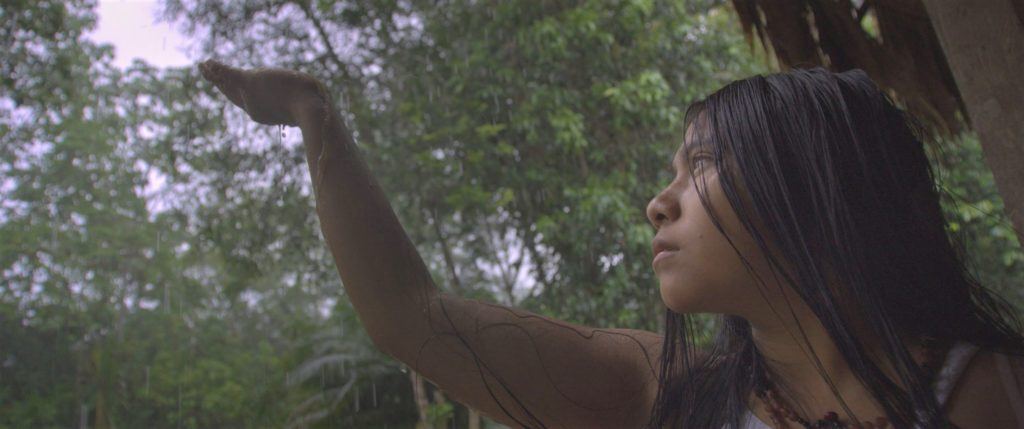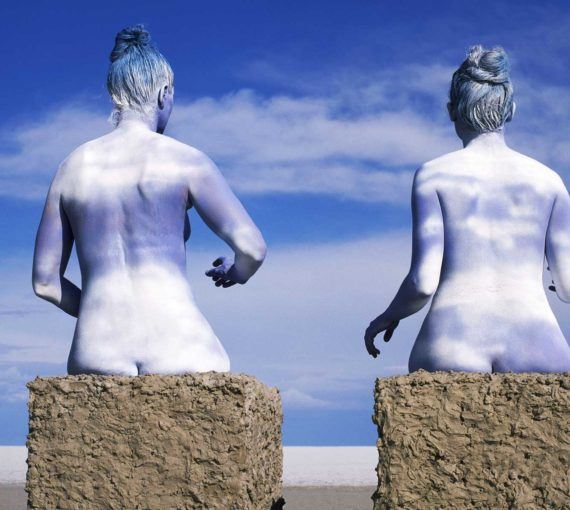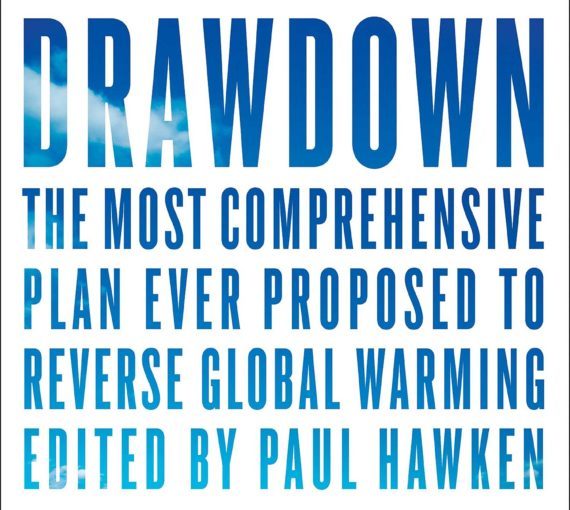
Mukutsawa Montahuano, youth activist of the Sápara Nation in the Amazon rainforests of Ecuador, where oil and mining exploration threaten her home. (Photo: National Film Board of Canada)
Death is inevitable and grieving helps us deal with the pain of losing someone close. But how do we grieve when loss goes from personal to planetary?
Jennifer Abbott began thinking about this after her sister died of cancer. In The Magnitude of All Things, she explores the intimate parallels between personal and collective grief in the face of the climate and extinction crises.
The filmmaker journeys to the front lines of climate breakdown to record the stories of those transforming grief into action, darkness into light. There’s Greta Thunberg, whose solitary school strike in front of the Swedish Parliament sparked a massive global youth movement. We meet Wonnarua traditional custodians Auntie Patricia Hansson and Uncle Kevin Taggart in New South Wales, Australia, where coal mining is tearing the land apart. We hear from many more about their experiences with changing landscapes and lives, about the sad and terrifying reality that will continue to worsen unless we act on a massive global scale to confront, as Extinction Rebellion’s Clare Farrell says, “this great big mistake” we’ve made. Among them are Sápara Nation traditional leader Manari Ushigua in Ecuador, Nunatsiavut Elder and artist Sarah Baikie, former Republic of Kiribati president Anote Tong, Labrador land protector Marjorie Flowers and people who lost homes to climate change–fuelled wildfires.
Throughout, Abbott reflects on her life growing up in Georgian Bay, Ontario, and later watching as her sister came to terms with her mortality, illustrating that it’s not just nature that is interconnected, but our stories, experiences and, yes, grief.
This powerful, moving film conveys the magnitude of the growing crisis that humans brought about by failing to understand our sacred duty to the one world that sustains us — as well as the magnitude of nature and life. As the Wonnarua traditional custodians say, “If this land hurts, we hurt.”
It’s difficult to talk about the climate and extinction emergencies — but it’s critical. Yes, we may grieve for what we have done to this beautiful world that provides so much, but if we channel that grief into connecting with others who care enough to demand change, if we rethink our relationship with the natural world, we can face the present and build a better future.
As the Wonnarua traditional custodians say, “If this land hurts, we hurt.”
The film will be available for streaming, Canadawide, through Toronto’s Planet In Focus International Environmental Film festival from October 14 to 18 and will be released more widely throughout Canada in 2021.


